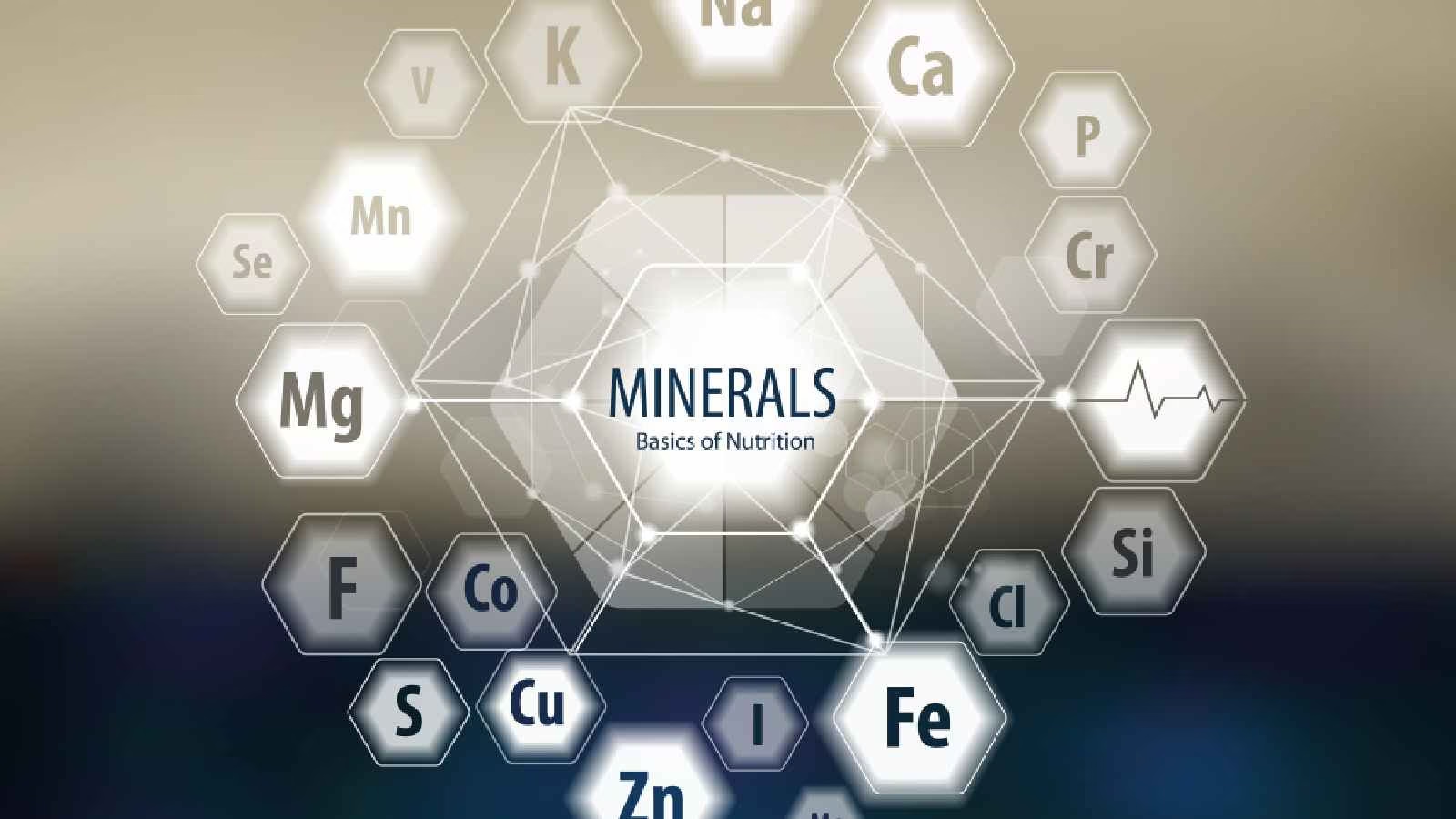Table of Contents
Minerals are essential nutrients required by the body for various physiological functions. They are categorized into major (macrominerals) and trace (microminerals) based on the amount required by the body.
Major Minerals
These are needed in larger amounts and include calcium, phosphorus, potassium, sulfur, sodium, chloride, and magnesium.
Functions of Major Minerals:
| Calcium | Vital for bone and teeth health, muscle and heart function, blood clotting, and nerve transmission. |
| Potassium | Important for nerve, muscle, and heart function, as well as regulating blood pressure. |
| Magnesium | Essential for bone health, energy metabolism, immune function, and blood pressure regulation. |
Trace Minerals
Required in smaller amounts but equally crucial for bodily functions. Examples include iron, zinc, copper, manganese, iodine, and selenium.
Functions of Trace Minerals:
| Iron | Vital for oxygen transport, energy production, and immune function. |
| Zinc | Involved in growth, development, immune function, and vitamin A metabolism. |
| Iodine | Necessary for thyroid hormone production, which regulates metabolism and growth. |
Food Sources:
| Calcium | Found in dairy products, fortified plant-based foods, almonds, and leafy greens. |
| Iodine | Obtained from seafood, dairy products, eggs, and iodized salt. |
| Iron | Found in red meat, poultry, fish, legumes, and fortified cereals. |
| Zinc | Present in red meat, shellfish, poultry, dairy, whole grains, and cereals. |
| Magnesium | Found in nuts, legumes, dark green vegetables, seafood, whole grains, and chocolate. |
| Potassium | Abundant in fruits, vegetables, lean meats, fish, nuts, and seeds. |
Health Considerations
| Iron Deficiency | Common, especially among certain groups like infants, adolescents, and vegetarians. |
| Sodium Intake | Excessive sodium consumption can lead to high blood pressure and other health issues. |
| Potassium Balance | Individuals with kidney disease or specific medications may need to monitor potassium intake. |
Ensuring adequate intake of both major and trace minerals through a balanced diet is crucial for maintaining overall health and preventing deficiencies or related health conditions.
This concise blog post provides an overview of important minerals, their functions, food sources, and health considerations, emphasizing the significance of a well-rounded diet for optimal health.
for more health tips clickhere
